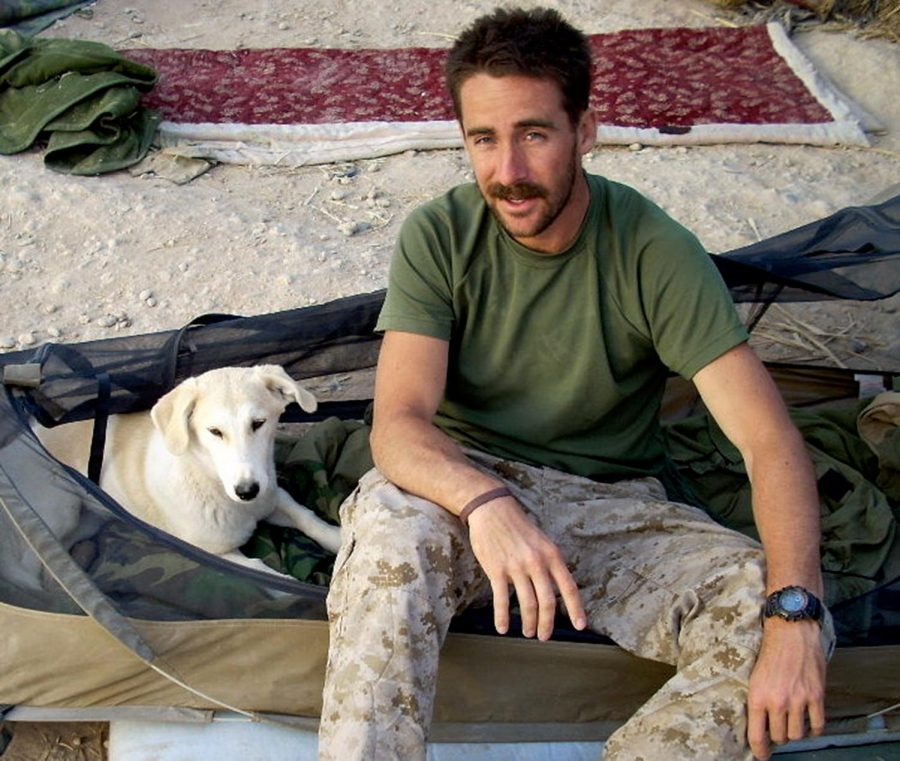How mans best friend can help Veterans returning home
The author of the book Craig and Fred, Craig Grossi, was a U.S Marine for 9 years. His time in the Marines included intelligence work for Recon unit, the most elite force in the Corps. He is also a recipient of the Purple Heart. He also managed to rescue Fred, a street dog from the Sangin District in Afghanistan. Fred, a street dog from the Sangin District in Afghanistan, also managed to rescue Craig Grossi, a U.S Marine.
The two met in the compound where Craig and his unit were staying. Fred was looking around for something to eat in the garbage, and Craig couldn’t help but feed him a little. Fred started to stick around and the two became best pals. Even Craig’s unit approved of Fred as Fred would go on missions with them. The Military doesn’t take too kindly to dogs, usually meaning they put them down, as soldiers can get too attached and put them in front of their peers lives. However, everything managed to work out in the end as Craig and Fred tour schools spreading their story.
However, not every return story is as glamorous as Craig Grossi’s. Many face hardship and PTSD as they return home and try to fit in to the civilian life. It has been statistically proven that the adoption of a dog helps returning Veterans as they ease stress, depression, and loneliness. Not only is the adoption of a pet a fantastic thing to do for any family, it’s especially beneficial to those returning from over seas. This also helps the 3.9 million dogs that get put into a shelter every year nationwide. I hate having to mention the 1.2 million dogs that have to get euthanized. There are countless organizations that already have the goal in mind to send our furry friends to the Vets.
A quote from the book “it is not what happens to us that matters, but how respond to it”. Life is going to throw punches, it happens to everyone. What’s unique with each and every punch is how we take it, how we deal with it. No matter how tough it gets, you can always power through. There is always a light at the end of the tunnel.
https://www.samhsa.gov/capt/tools-learning-resources/coping-traumatic-events-resources


oceanmtnsky • Jan 18, 2019 at 8:59 am
This story points out that there are always lessons for us to learn if we pay attention. Craig’s awareness of the moment and attention that he paid to Fred the dog enabled him to give of himself and find strength to deal with the stress and trauma of being a marine deployed in Afghanistan. It reminds me of the phrase”general welfare” When we provide for the “general welfare”of all we also invest in our own welfare or well being. Stress and trauma are real struggles for many and this type of therapy seems to be a win win situation. If we want to reduce our stress we should always look for a reason to wag our tails.
Matics • Jan 18, 2019 at 8:25 am
I agree, Dogs can save lives in many different ways, mentally and emotionally. They’re their to make you feel loved and happy and to be protected. Dogs have good hearts for the humankind.
oshi • Jan 17, 2019 at 9:29 am
Dogs are the best thing humans have, they won’t betray you no matter what you do to them, they are the only one who will stay with you until one of you die. This story remind me when I was giving water and food to homeless dogs, it’s a really good history.